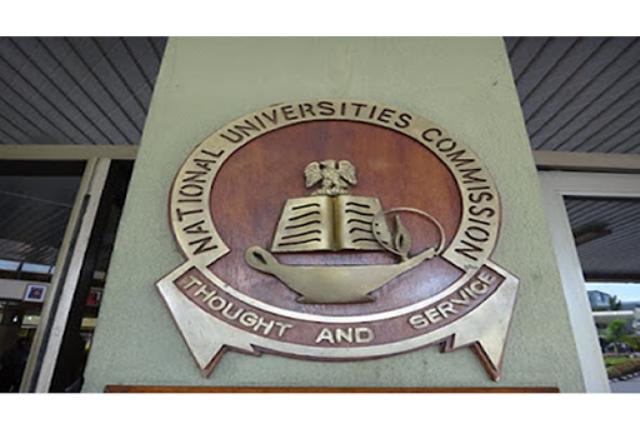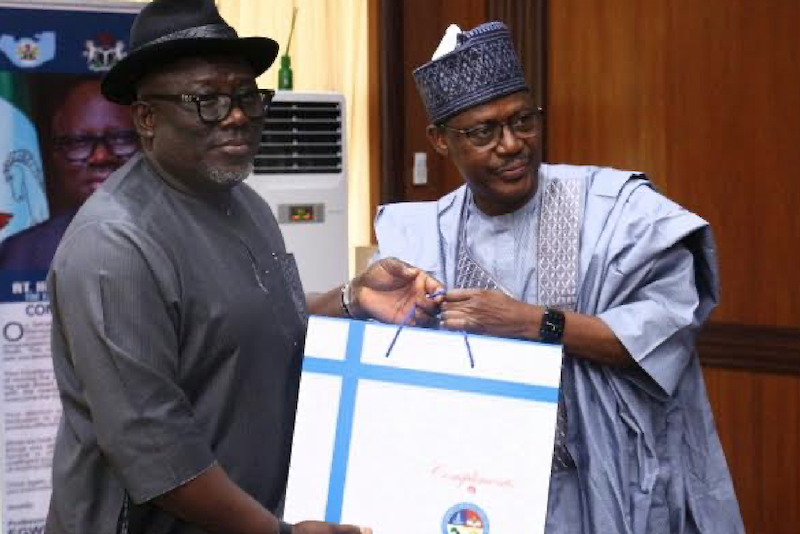Delta State Governor, Rt Hon Sheriff Oborevwori, Monday, said the State Government has placed premium on education to keep students of the State on track and focused.
Governor Oborevwori stated this when he received on courtesy visit officials of the National University Commission, NUC led by its Acting Executive Secretary, Mr. Chris Maiyaki in his office in Government House, Asaba.
He thanked the NUC for approving the three new universities for the state, saying the establishment of the new universities was well justified hence the House of Assembly he presided over didn’t waste time in passing the bills.
Governor Oborevwori, said: “When we received the bill for the three universities, we looked at the justifications for three universities and we found out that they had the staff and infrastructure.
“They had subvention but the students were not there because the NCE programmes were no longer attractive to them.
“Where we had about 900 staff in the then College of Education, Agbor, you cannot even find 1,000 students and what we provide there is enough to run a full-fledged university.
“The money used in running the College is also the same thing to run Ambrose Alli University, Ekpoma where I graduated from and they have over 15,000 students yet we can’t get even 1,000 at the College of Education, Agbor.
“So we didn’t waste time to approve the bill. Moreover, that period we had over 25,000 Deltans that passed JAMB and were qualified for university education but the universities couldn’t admit more than 5,000.
“So what happens to the remaining 20,000 students? They have to wait for another year again? And we said no its a very brilliant idea to upgrade three existing higher institutions into full-fledged universities and we had to pass the bills.
“I must commend NUC for approving the three universities for Delta State. I want to assure you that as a government we will continue to provide whatever it takes to make the universities great.
“Here in Delta State we take education very seriously, because you may acquire anything on this earth, it will go but education will remain with you till death.
“Here in Delta we value education because by the time you train your children, they will not be involved in crime, they will be focused in life.
“So education is another way of reducing crime and since I came in we have been in touch with them and all that is necessary in terms of staffing and infrastructure would be provided.
“Delta is peaceful and everywhere is beautiful but if you see any road that is not good in Delta State just know that it is a federal road.
“We are taking care of our state roads and even intervening in some federal roads like the over 147km Ughelli/ Asaba Road dualisation project which am very sure would be completed by next year”.
Earlier in his remarks, the Acting Executive Secretary of NUC, Mr. Chris Maiyaki, commended Delta State Government for its contributions to sustainable educational development in the state and country.
Maiyaki explained that the visit was coming at a time when the calls for the reinvention of higher education system was “getting louder and louder by the day”.
He congratulated the Delta State Government for being very educational friendly government and for being the state with the highest number of state-owned universities in the country.
“Your Excellency, we like to congratulate your government for being so educationally-friendly and the information we have is that the university we are visiting was founded when you were the Speaker of the State House of Assembly.
“It was during your time that having appended your signature that we accepted and granted licences to the University of Delta, Agbor, the Delta State University of Science and Technology, Ozoro and the Dennis Osadebay University, Anwai-Asaba,” he said.
He said the NUC was vested by law with the vital and strategic responsibility of orderly development of university education, the general coordination and regulation of the sub-sector.
He said the visit was crucial and pivotal because the result will enable the University admit students into the programmes visited.
“We carry out that vital assignment through the monitoring of implementation of minimum standards, licence of private universities, conducting resource verification and accreditation of courses among others.
“We are here to carry out resource verification of academic programmes at the University of Delta, Agbor, to ascertain the quality and the quantity of the physical facilities, the human resources, the ICT deployments, the learning resources in hard and soft copies and of course the atmosphere for learning.
“This visit is crucial and very pivotal because the result emanating from this visit will enable the University admit students into the programmes we have visited.
“We like to thank you for the sustainable funding and support that you have extended to this University and indeed all other institutions of higher learning in Delta.
“Delta State is the only state that has four state universities in the country and this goes to show the importance that you attach to university education in Delta State.
“Delta is blessed and endowed with material, human and natural resources and having four state universities underpins the premium that you attach to university education.
“Your continued support to these universities would be a legacy to your government and a collective benefit to be shared for the posterity of Delta State.
“We are here to conduct resource verification for Basic Medical Sciences and Medicine, Law, Education, Agricultral Economics and if you look at the profile of these programmes, they are very capital intensive.
“We congratulate you and wish you resounding success as you embark on your programmes and policies that you collectively work to reposition Delta on the path of continuous progress,” Maiyaki stated.

